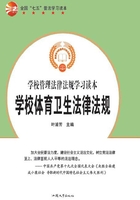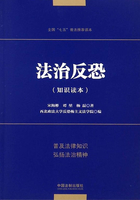Ath. Yes, Cleinias, temperance in the vulgar sense; not that whichin the forced and exaggerated language of some philosophers iscalled prudence, but that which is the natural gift of children andanimals, of whom some live continently and others incontinently, butwhen isolated, was as we said, hardly worth reckoning in the catalogueof goods. I think that you must understand my meaning.
Cle. Certainly.
Ath. Then our tyrant must have this as well as the otherqualities, if the state is to acquire in the best manner and in theshortest time the form of government which is most conducive tohappiness; for there neither is nor ever will be a better orspeedier way of establishing a polity than by a tyranny.
Cle. By what possible arguments, Stranger, can any man persuadehimself of such a monstrous doctrine?
Ath. There is surely no difficulty in seeing, Cleinias, what is inaccordance with the order of nature?
Cle. You would assume, as you say, a tyrant who was young,temperate, quick at learning, having a good memory, courageous, of anoble nature?
Ath. Yes; and you must add fortunate; and his good fortune must bethat he is the contemporary of a great legislator, and that some happychance brings them together. When this has been accomplished, Godhas done all that he ever does for a state which he desires to beeminently prosperous; He has done second best for a state in whichthere are two such rulers, and third best for a state in which thereare three. The difficulty increases with the increase, anddiminishes with the diminution of the number.
Cle. You mean to say, I suppose, that the best government isproduced from a tyranny, and originates in a good lawgiver and anorderly tyrant, and that the change from such a tyranny into a perfectform of government takes place most easily; less easily when from anoligarchy; and, in the third degree, from a democracy: is not thatyour meaning?
Ath. Not so; I mean rather to say that the change is best made outof a tyranny; and secondly, out of a monarchy; and thirdly, out ofsome sort of democracy: fourth, in the capacity for improvement, comesoligarchy, which has the greatest difficulty in admitting of such achange, because the government is in the hands of a number ofpotentates. I am supposing that the legislator is by nature of thetrue sort, and that his strength is united with that of the chiefmen of the state; and when the ruling element is numerically small,and at the same time very strong, as in a tyranny, there the change islikely to be easiest and most rapid.
Cle. How? I do not understand.
Ath. And yet I have repeated what I am saying a good many times; butI suppose that you have never seen a city which is under a tyranny?
Cle. No, and I cannot say that I have any great desire to see one.
Ath. And yet, where there is a tyranny, you might certainly see thatof which I am now speaking.
Cle. What do you mean?
Ath. I mean that you might see how, without trouble and in no verylong period of time, the tyrant, if he wishes, can change themanners of a state: he has only to go in the direction of virtue or ofvice, whichever he prefers, he himself indicating by his example thelines of conduct, praising and rewarding some actions and reprovingothers, and degrading those who disobey.
Cle. But how can we imagine that the citizens in general will atonce follow the example set to them; and how can he have this powerboth of persuading and of compelling them?
Ath. Let no one, my friends, persuade us that there is any quickerand easier way in which states change their laws than when therulers lead: such changes never have, nor ever will, come to pass inany other way. The real impossibility or difficulty is of anothersort, and is rarely surmounted in the course of ages; but when once itis surmounted, ten thousand or rather all blessings follow.
Cle. Of what are you speaking?
Ath. The difficulty is to find the divine love of temperate and justinstitutions existing in any powerful forms of government, whetherin a monarchy or oligarchy of wealth or of birth. You might as wellhope to reproduce the character of Nestor, who is said to haveexcelled all men in the power of speech, and yet more in histemperance. This, however, according to the tradition, was in thetimes of Troy; in our own days there is nothing of the sort; but ifsuch an one either has or ever shall come into being, or is nowamong us, blessed is he and blessed are they who hear the wise wordsthat flow from his lips. And this may be said of power in general:
When the supreme power in man coincides with the greatest wisdom andtemperance, then the best laws and the best constitution come intobeing; but in no other way. And let what I have been saying beregarded as a kind of sacred legend or oracle, and let this be ourproof that, in one point of view, there may be a difficulty for a cityto have good laws, but that there is another point of view in whichnothing can be easier or sooner effected, granting our supposition.
Cle. How do you mean?
Ath. Let us try to amuse ourselves, old boys as we are, bymoulding in words the laws which are suitable to your state.
Cle. Let us proceed without delay.
Ath. Then let us invoke God at the settlement of our state; may hehear and be propitious to us, and come and set in order the Stateand the laws!
Cle. May he come!
Ath. But what form of polity are we going to give the city?
Cle. Tell us what you mean a little more clearly. Do you mean someform of democracy, or oligarchy, or aristocracy, or monarchy? For wecannot suppose that you would include tyranny.
Ath. Which of you will first tell me to which of these classes hisown government is to be referred?
Megillus. Ought I to answer first, since I am the elder?
Cle. Perhaps you should.















